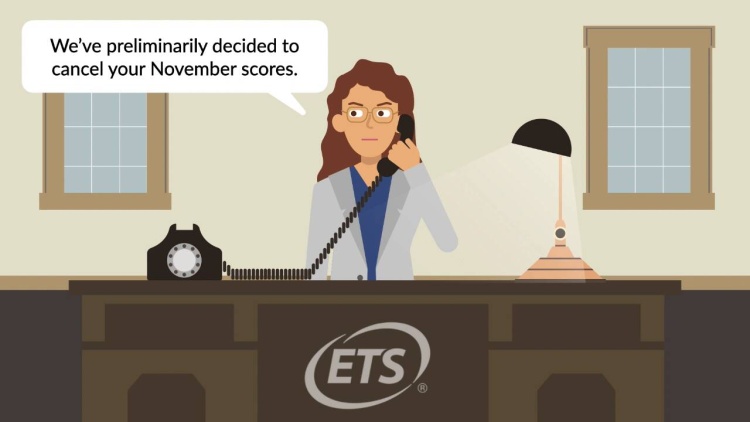Dalton v. Educational Testing Service
New York Court of Appeals
663 N.E.2d 289, 87 N.Y.2d 384 (1995)

- Written by Christine Hilgeman, JD
Facts
In May, Brian Dalton (plaintiff) took the Scholastic Aptitude Test (SAT), which was administered by the Educational Testing Service (ETS) (defendant). Dalton then took the exam a second time in November. When Dalton registered to take the SAT, he signed a statement agreeing to abide by the conditions in a registration bulletin. The bulletin gave ETS the right to cancel any test score if there was reason for ETS to question the validity of the score. The bulletin also provided that if ETS questioned whether the score had been obtained improperly, ETS would notify the test taker of its reasons for questioning the score and give the test taker five options, including the opportunity to provide additional information. Dalton's combined score on the November SAT increased by 410 points, which triggered a review by ETS because the increase exceeded 350 points. Based on its own review and review by a document examiner, ETS believed the answer sheets contained disparate handwriting, indicating that they were completed by different individuals. ETS’s Board of Review found sufficient evidence to preliminarily cancel the November test results, and a letter was sent notifying Dalton of its decision, advising him of the handwriting differences, suggesting that someone else completed his answer sheet, and advising him to supply more information or choose one of the other four options. Dalton submitted additional information consisting of a verification that he had been ill when taking the May examination, test results from an SAT preparatory course taken prior to the November exam and consistent with the November test results, statements from an ETS proctor and two students verifying his presence at the exam, and the report of a document examiner affirming that Dalton had completed both answer sheets. ETS continued to question the November test scores, and Dalton commenced an action seeking to compel ETS to release the scores. The trial court ruled in favor of Dalton, finding that ETS had not acted in good faith in focusing on handwriting evidence and disregarding, as irrelevant, the evidence of Dalton's health and presence at the exam. The trial court directed ETS to release the November scores. The New York State Appellate Division affirmed.
Rule of Law
Issue
Holding and Reasoning (Kaye, C.J.)
What to do next…
Here's why 907,000 law students have relied on our case briefs:
- Written by law professors and practitioners, not other law students. 47,100 briefs, keyed to 996 casebooks. Top-notch customer support.
- The right amount of information, includes the facts, issues, rule of law, holding and reasoning, and any concurrences and dissents.
- Access in your classes, works on your mobile and tablet. Massive library of related video lessons and high quality multiple-choice questions.
- Easy to use, uniform format for every case brief. Written in plain English, not in legalese. Our briefs summarize and simplify; they don’t just repeat the court’s language.





